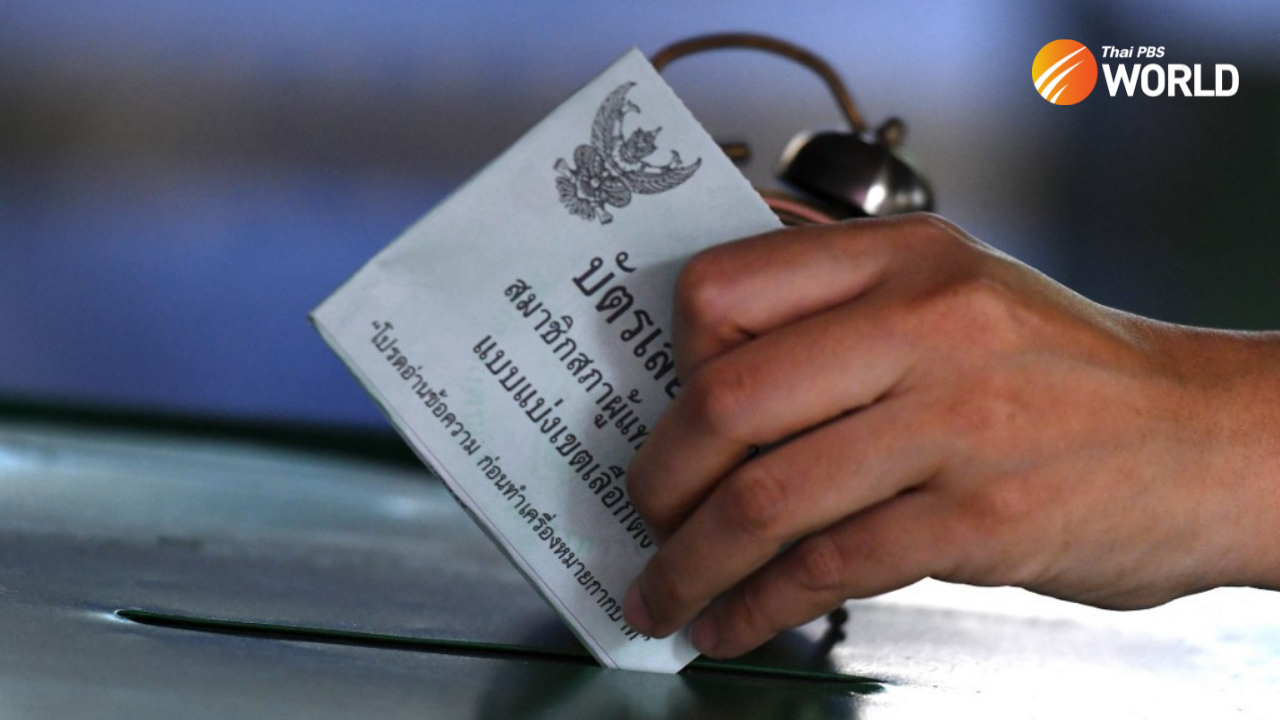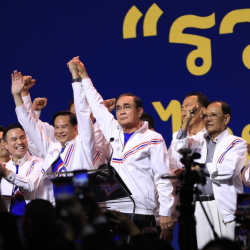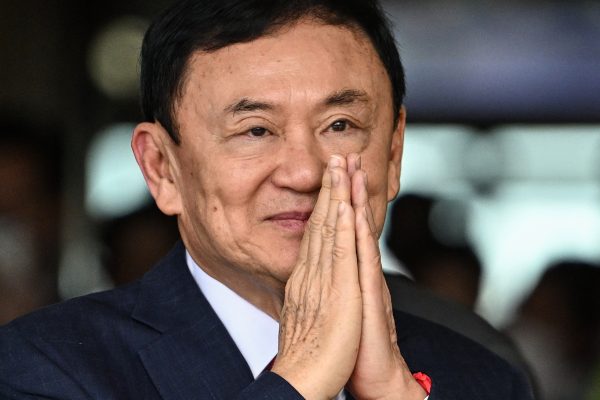Election and fight to form new govt promise tumultuous year ahead in Thai politics

The main focus of Thai politics this year will be the general election, bargaining to form a new government, and possible constitutional amendment.
Analysts expect the already intense political conflict to deepen following the election, tentatively scheduled for May. Rival alliances will fight to form a new coalition government, but many experts predict General Prayut Chan-o-cha will return as prime minister to lead the ruling coalition.
The national vote will dominate politics in the first half of 2023 while the latter half will see frenzied bargaining and lobbying as political parties vie for government power, observers say.
Election delay possible
However, it remains unclear if the next election will be held as scheduled as the revised MP Election Act is still awaiting royal endorsement, said Stithorn Thananithichot, director of King Prajadhipok Institute’s Office of Innovation for Democracy.
A royal endorsement would mean the law could be promulgated in March, otherwise the government would need to issue an executive decree to regulate the election, Stithorn said.
The prime minister submitted the MP Election Act and the Political Parties Act – two laws required to hold the election – for royal endorsement on December 16. His Majesty the King has 90 days, until mid-March, to consider whether to grant endorsement.
The House of Representatives’ four-year term ends on March 23. Stithorn said he did not expect any political vacuum since the worst-case scenario would be a delayed general election.
If the government does have to issue an electoral decree, the Constitutional Court could then be petitioned for a ruling on whether that move was constitutional. The election might then be delayed pending the court’s verdict.
The analyst said that if the election is completed by May, the official results would be announced within two months. So, he expects the next House of Representatives to hold its first meeting around mid-July and Parliament to vote for a prime minister in late July.
But even though a new prime minister can be elected at the first parliamentary meeting, it will take a long time to form the next government, he said, pointing to the likelihood of intense political bargaining to form a coalition.
The Election Commission has tentatively scheduled the next national poll on May 7, presuming the House is not dissolved.
Stithorn forecast that the PM vote would likely be held soon after both Houses’ first joint meeting if Prayut’s United Thai Nation Party (Ruam Thai Sang Chart) and current ruling party Palang Pracharath together win more than 100 MP seats to go with the 250 Senate votes already in their pocket.
The Senate is empowered to vote with the House of Representatives to select a prime minister for the first five years after the 2019-installed Parliament.
However, the analyst foresees a long period of bargaining to form the next coalition government. He expects Bhumjaithai Party, the second largest in the current coalition, to have increased bargaining power in the negotiations for ministerial posts. He expects the next government may be formed around early September.
Three coalition scenarios
Stithorn reckons there are three scenarios for the formation of the next coalition government, depending on the number of seats the parties win.
The two main opposition parties – Pheu Thai and Move Forward – could form the government if they can win an accumulated 280 MP seats. However, ties between the two have soured recently.
Or Pheu Thai and three existing coalition parties – Palang Pracharath, Bhumjaithai and the Democrats – could form the ruling coalition. This four-party formula gained credibility after Bhumjaithai’s patriarch Newin Chidchob – a former political heavyweight who holds no executive positions in the party – said recently, “There are no true friends or permanent foes in Thai politics.”
The third scenario consists of Prayut’s party and Palang Pracharath winning at least 100 MP seats. They could then form a new coalition government with existing allies Bhumjaithai and the Democrats. With the guaranteed support of 250 senators who were appointed by his junta government, Prayut could then make his comeback as prime minister.
Stithorn said a coalition government led by Palang Pracharath and Ruam Thai Sang Chart is the most likely scenario, as the current powers-that-be will do their utmost to remain in power.
He reckons that Prayut’s new party will win 25-30 MP seats, enough to be eligible to nominate him for the prime ministerial race. However, Palang Pracharath is likely to dump him if Prayut’s party wins only 20 MP seats, the analyst said.
He said that if Prayut senses Ruam Thai Sang Chart will fail to win the minimum 25 MP seats needed to nominate him for the PM race, his easiest option will be to leave the party and get Bhumjaithai to do the job instead.
Another term for Prayut?
Yuthaporn Issarachai, a political scientist from Sukhothai Thammathirat Open University, said that Prayut has a good chance of returning as prime minister, adding that the coalition partners would remain unchanged, with Ruam Thai Sang Chart joining Palang Pracharath, Bhumjaithai, the Democrats and Chart Thai Pattana.
Many political observers expect Prayut to resume his premiership after the election, though he can only serve until August 2025 after a Constitutional Court verdict on the PM’s eight-year term limit. They say that Prayut’s rivals are unlikely to receive the same strong support from senators during the vote for a new PM.
Yuthaporn said that senators would only back a rival to Prayut if his or her party won a landslide at the election, which is “very unlikely”.
Current opposition parties need to win a minimum combined 376 of the 500 House seats up for grabs to neutralize the Senate’s voting power. The figure of 376 represents a simple majority of both Houses, which comprise 500 MPs and 250 senators.
For Yuthaporn, that goal is unrealistic as he thinks Pheu Thai is unlikely to win more than 200 MP seats and Move Forward can only expect 50 to 60.
Conflict expected to linger on
The analyst noted that the general election would be held amid deep political polarization, as the causes of the conflict remain largely unchanged, particularly the clause of the Constitution that allows senators to join MPs in selecting the prime minister.
He expected the election contest to be fierce and the post-election conflict to bring the threat of dissolution for some parties. Certain parties may not accept the election result and the dispute could lead to a new round of political conflict, he said.
More constitutional amendments?
Another political highlight this year could be further attempts to amend the Constitution, Yuthaporn said.
He is convinced that if Prayut manages to return as prime minister, politicians loyal to him are likely to seek a constitutional amendment removing the clause that prohibits anyone from serving as prime minister for more than eight years, consecutively or not. Without this clause, Prayut would be able to complete a full four-year term – serving until 2027, and not 2025 as is the case at present.
By Thai PBS World’s Political Desk






